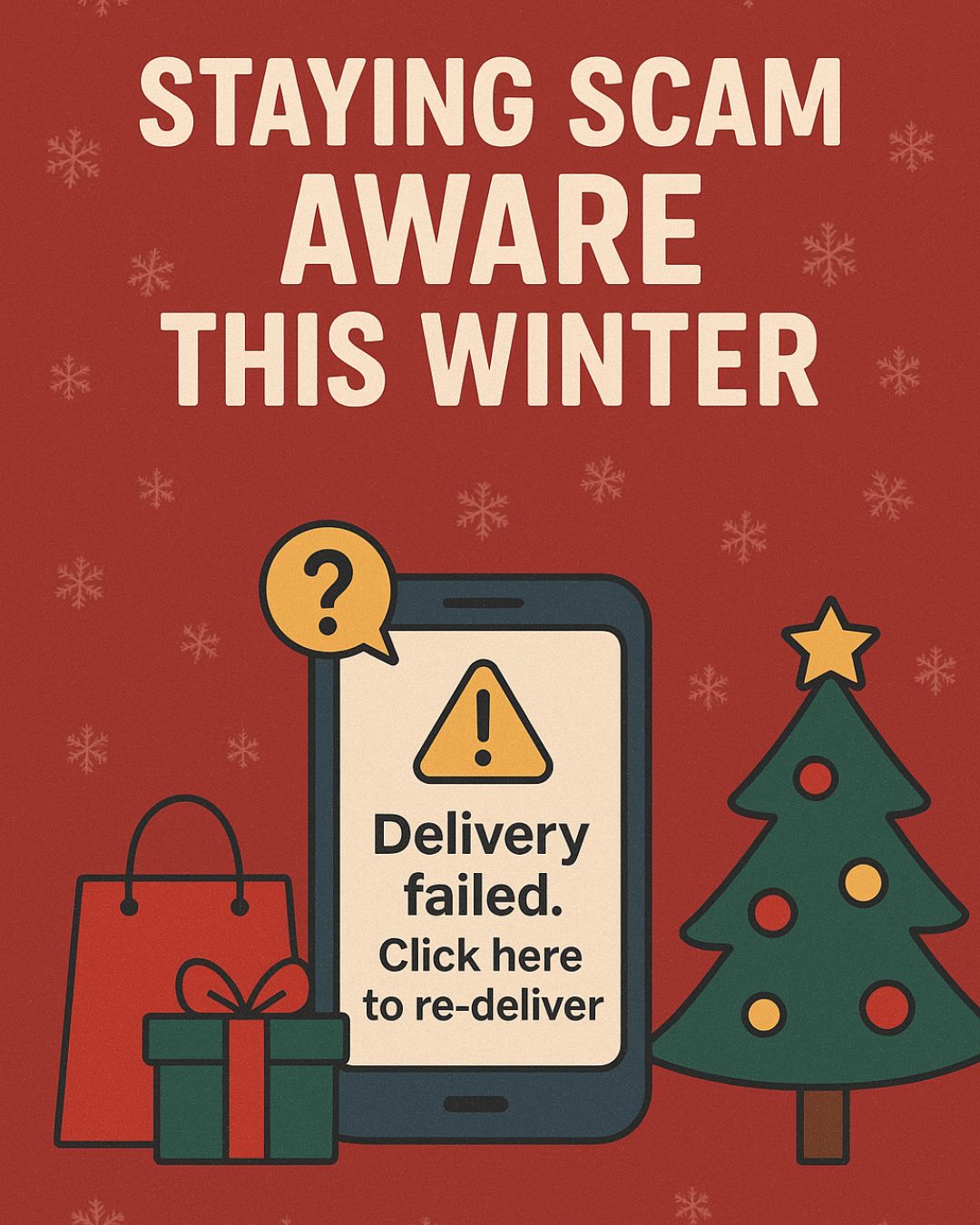Staying Scam Aware This Winter: Protect Yourself During the Festive Season

As the festive season approaches, many of us are busy buying gifts, booking travel, and preparing for celebrations. Unfortunately, it’s also a time when scammers become more active, taking advantage of the rush and goodwill that come with the holidays. From fake charity appeals to online shopping fraud, winter is a peak time for scams — but with a few simple precautions, you can keep your money and personal information safe.
Why Scams Increase Over the Winter Months
Scammers know that during the lead-up to Christmas, people are spending more, shopping online more often, and feeling generous. This creates the perfect environment for fraudsters to exploit distractions and emotions. Common tactics include pretending to be delivery companies, online retailers, charities, or even your bank.
Common Winter and Christmas Scams to Watch Out For
1. Fake Delivery Notifications
With online shopping at its peak, fake delivery texts or emails are one of the most common scams. These messages often claim that a parcel couldn’t be delivered and ask you to click a link or pay a small “redelivery fee.” Clicking through can expose you to phishing websites designed to steal your payment details.
Tip: Always check the sender’s address carefully, and never click on links from unexpected messages. Go directly to the courier’s official website to track parcels.
2. Online Shopping and Marketplace Scams
Fraudsters often set up fake websites or listings offering popular gifts at unbelievable prices. Once payment is made, the item never arrives — and your money is gone.
Tip: Only buy from reputable retailers and check for secure payment methods (look for “https” in the web address). Be wary of sellers asking for bank transfers or gift cards as payment.
3. Charity Scams
During the festive period, scammers exploit goodwill by posing as legitimate charities or fundraising platforms.
Tip: Before donating, research the charity through the Charity Commission or contact them directly using details from their official website.
4. Cost-of-Living and Energy Bill Scams
As winter energy costs rise, fraudsters send fake emails or calls offering “government rebates” or “discounts” on bills. They may ask for personal or bank details to “process your claim.”
Tip: Government schemes are never handled via cold calls, text messages, or unexpected emails. Always verify offers through official government or energy supplier websites.
5. Social Media Gift Exchanges and Competitions
You may see “Secret Santa” gift exchanges or giveaways on social media that seem fun and harmless, but many are designed to collect personal data or promote fake pages.
Tip: Avoid sharing personal information on public posts and be cautious about offers that seem too good to be true.
How to Stay Safe This Festive Season
-
Pause and think before you act. Scammers rely on pressure and urgency. Take time to verify messages or calls.
-
Use strong passwords and enable two-factor authentication wherever possible.
-
Keep your devices secure by installing updates and using antivirus protection.
-
Report suspicious activity to Action Fraud (www.actionfraud.police.uk) or contact your bank immediately if you think you’ve been scammed.
Enjoy a Safe and Scam-Free Christmas
Staying vigilant doesn’t mean you can’t enjoy the festive season — it just means being cautious and aware. By taking a few extra moments to check, verify, and protect, you can focus on what really matters this winter: spending time with loved ones and celebrating safely.